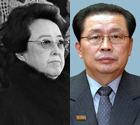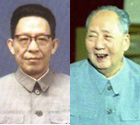张业遂大使在乔治·布什总统图书馆演讲英文版
2011年10月23日,中国驻美大使张业遂在乔治·布什总统图书馆的演讲,以下为演讲英文版:
Honorable President George H. W. Bush and Mrs. Barbara Bush,
President R. Bowen Loftin,
Ambassador Roman Popadiuk,
Ladies and Gentlemen,
Thank you, Ambassador Popadiuk, for the introduction and for the invitation.
It's a great honor and privilege to speak at the George Bush Presidential Library. I want to express our sincere gratitude to the George Bush Presidential Library Foundation and the Texas A&M University for organizing this event and for their valuable contributions to China-US relations over a course of many years. I wish to pay special tribute to President George H. W. Bush for his sustained and tireless effort to promote friendship and cooperation between our two peoples and two countries.
I also want to thank the Texas A&M University, the George Bush Presidential Library Foundation, the George Bush School of Government and Public Service, and the Chinese People's Association for Friendship with Foreign Countries, for co-hosting the fifth China-US Relations Conference, which will be held here tomorrow.
This year marks the 40th anniversary of the reopening of relations between China and the United States. 40 years ago, the Chinese and American leaders, with great vision and political wisdom, made the decision to reach out to each other after 22 years of estrangement and hostility. It was a decision that opened a new page in China-US relations and brought about profound changes in international relations.
40 years later, despite ups and downs, with the shared commitment and joint efforts from the leadership, governments and people of all walks of life in both countries, China-US relationship has surged ahead and has come a long way. Today, China-US relationship has become one of the most important and dynamic relationships in the world.
As I see it, China-US relationship has the following four distinctive features:
Firstly, the economic interests of China and the United States have been closely interconnected. 40 years ago, our trade and economic activities were almost nonexistent. We are now each other's second largest trade partner. Last year, bilateral trade reached US$385 billion. China has been the US's fastest growing export market for the last 10 years, and US exports to China increased by 468% from 2000 to 2010, while its exports to other countries increased only by 55%. The US continues to be the No. 1 source of foreign direct investment for China, and China has become the biggest foreign creditor for the US.
Secondly, dialogue and consultation at various levels have increased and improved. There have been frequent high level visits and exchanges. Over 60 dialogue and consultation mechanisms have been established covering a wide range of areas, including the Strategic and Economic Dialogue, the Joint Commission on Commerce and Trade, the High-Level Consultation on People-to-People Exchanges, and the recently established Strategic Security Dialogue and the Asia-Pacific Affairs Consultation. These mechanisms have provided unique and effective platforms for China and the US to build trust and expand cooperation.
Thirdly, there have been extensive and growing social interactions between our two countries. Every year, more than three million visits are made between China and the US. About 9,000 people are traveling across the Pacific each and every single day. We have 38 pairs of sister province/state relationships and 169 sister city relationships. As we speak, about 130,000 Chinese are studying in the US, and over 20,000 Americans are studying in China. Currently, about three hundred million people in China are learning English, and more than two hundred thousand people in the US are learning Chinese.
Finally, the two countries have kept effective communication and cooperation on many important regional and global issues. China and the US are working closely in almost every field, from traditional security and development areas to newly emerged issues such as anti-terrorism, non-proliferation, climate change, energy and environmental protection; from addressing the global financial crisis and facilitating world economic recovery to the realization of the UN Millennium Development Goals. China-US cooperation is assuming an increasing global implication.
It is fair to say that China-US relationship has evolved to such a point that would surprise even the most imaginative person 40 years ago. The fundamental reason and driving force lie in the expanding common interests between the two countries and shared responsibilities in ensuring sustainable development and dealing with emerging global challenges.
At the same time, China-US relationship is probably one of the most complex bilateral relationships in the world. China and the United States are different in political system, social value, historic and cultural traditions. There is a huge gap in the level of economic and social development, with China being the largest developing country and the US being the largest developed country. China is an emerging economy while the US is a strong established power. These differences have decided that we do not see eye to eye with each other on many issues. These differences can also lead to misunderstanding and mistrust in each other's strategic intentions.
In the history of human civilization, there perhaps has never existed such a bilateral relationship as the China-US relationship before. Therefore there is no ready path to follow and no historical experience or model to copy. How we finally choose to manage, shape and grow this relationship will determine its course in the next 40 years.
In January this year, President Hu Jintao paid a successful state visit to the United States. Among the many results that came out of the visit, the most meaningful was the shared commitment that President Hu and President Barack Obama have made in the Joint Statement, that the two sides will work together to build a cooperative partnership based on mutual respect and mutual benefit. This has laid the groundwork, and it depends on how we work together to make it happen. In my view, as we build this cooperative partnership, we should concentrate on the following four priorities:
No. 1: We must view China-US relations from a new perspective.
In the era of globalization and given the size and the degree of interconnectedness of the two countries, China and the US can be regarded as a community of interests. This is not and should not be a zero-sum game relationship. If people continue to look at each other with the cold war mindset, China and the United States will be drawn into confrontation and conflict. It is imperative to shift from the old habitual way of thinking and begin to frame China-US relations with a global view and from a strategic and long-term perspective. If we work together as partners, we would both emerge as winners.
No. 2: We must work together to advance our mutual economic interests.
Economic and trade ties have always been the cornerstone and engine for our overall relations. Currently, China and the US are undertaking massive efforts to restructure our economies. The core of China's 12th Five-Year Plan is to transform the mode of economic development and expand domestic consumption. The US is also striving to jumpstart its economy through revitalizing American manufacturing, strengthening infrastructure and expanding export. This offers real opportunities not only for increased trade and investment activities, but also for expanding cooperation in such areas as clean energy, energy conservation, environmental protection, and infrastructure.
There is also great potential for collaboration at the sub-national level. In the past decade, 47 out of 50 states in America have seen a three digit, in some cases even four digit growth in their export to China. The China-US Governors Forum, which was launched this summer, has been well received by both sides, and will provide a new and effective platform to promote economic and trade ties at the sub-national level.
No. 3: We must continue to improve strategic mutual trust.
Trust is the basis for any partnership. To a large extent, how deeply we trust each other determine whether we can cooperate, and how well we cooperate. It is imperative to have a correct judgement and understanding of each other's strategic intention and policy objectives. Following his successful visit to China in August, Vice President Joe Biden wrote in the New York Times that "a successful China can make our country more prosperous, not less." Equally, a successful and growing America is also in China's interests.
We need close dialogues and communications in order to build strategic trust and avoid miscalculations and misperceptions. We should take advantage of the dialogue mechanisms we have put in place, in particular, the Strategic and Economic Dialogue, Strategic Security Dialogue and Asia-Pacific Affairs Consultation, and use them fully and wisely, in order to communicate in a prompt way and minimize the chances of conflicts and strategic surprises.
| |
1
2
|
|
- 社会
- 娱乐
- 生活
- 探索
湖北一男子持刀拒捕捅伤多人被击毙
04/21 07:02
04/21 07:02
04/21 07:02
04/21 06:49
04/21 11:28
频道推荐
商讯
48小时点击排行
-
624081
1邓小平感叹:华国锋这人选对了 -
256198
2凤凰卫视记者常洛闻带您走进真实的朝鲜 -
67317
3江青与邓小平两败俱伤 毛最终选华国锋 -
47097
4凤凰卫视记者常洛闻带您走进真实的朝鲜 -
41031
5中纪委加强反腐 或选某“大老虎”作突 -
35447
6红墙摄影师:毛泽东的哪些照片曾经不能 -
33436
7阮次山:习近平讲话微妙 连战心中打鼓 -
31006
8评:日本拥核 美日拖垮中国最后王牌




















